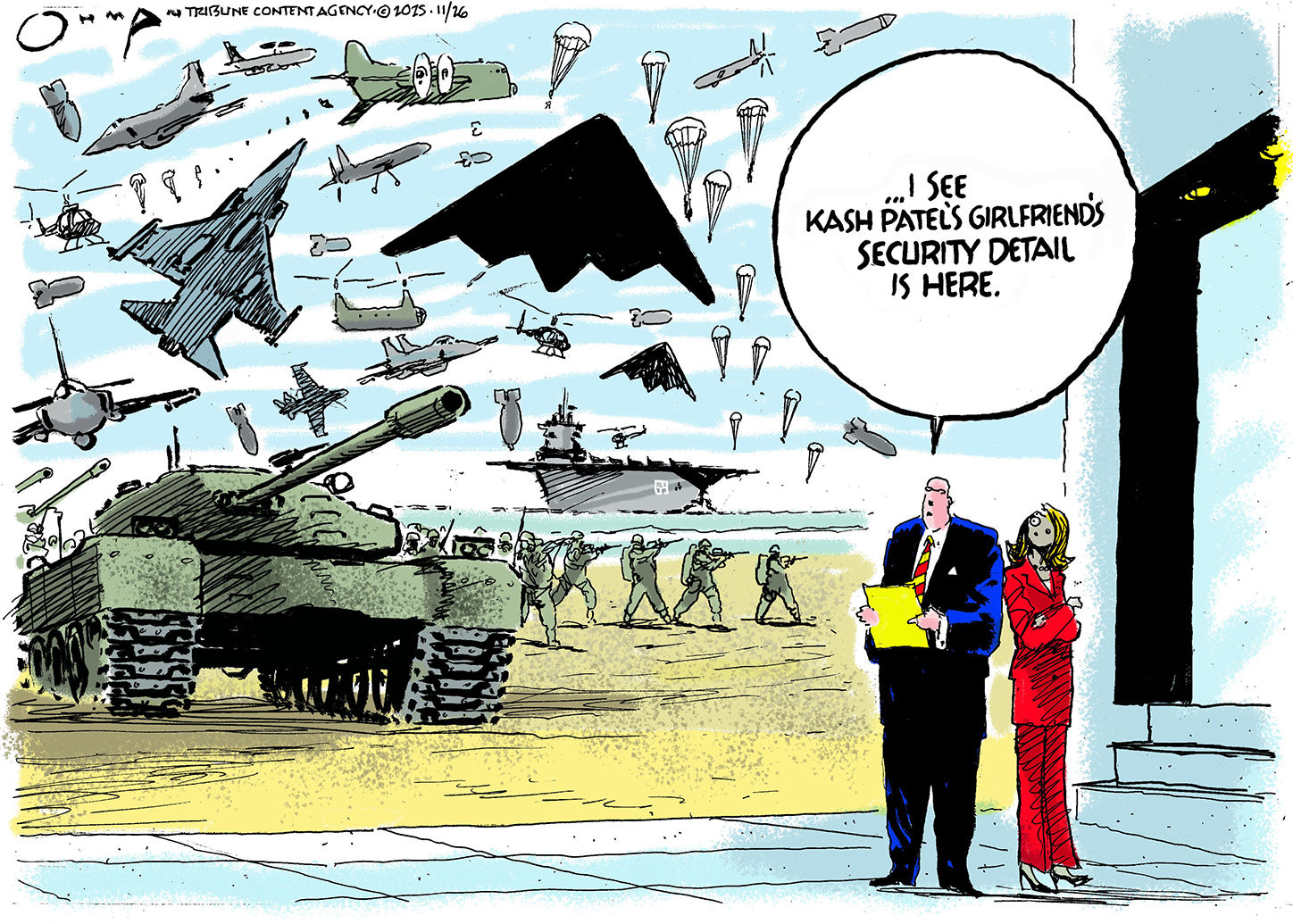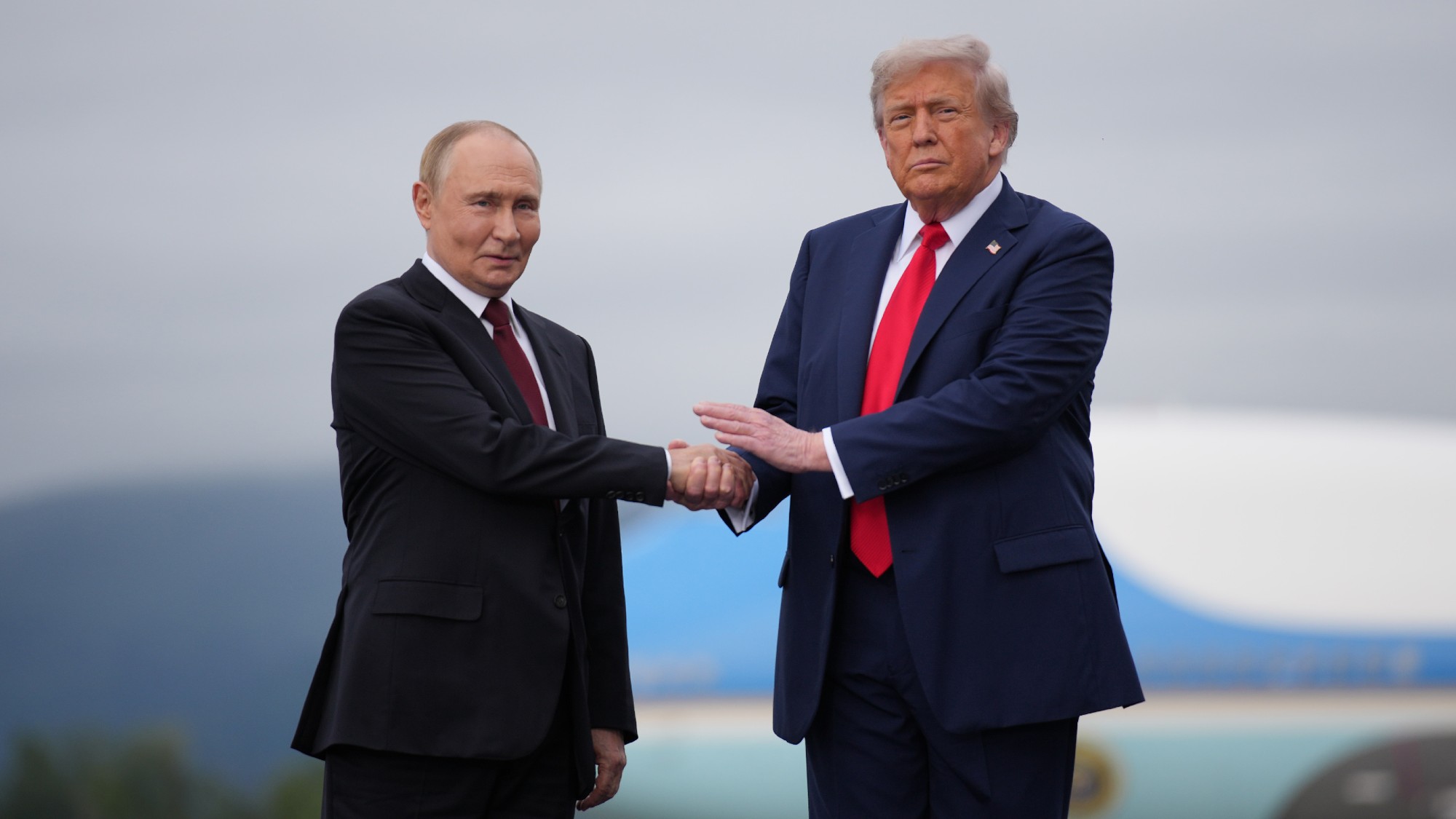Why dismantling Amazon really could rescue 'Trump country'
Time for an all-out attack on market power


President Trump is mad at Amazon. He thinks the retail behemoth is shortchanging the U.S. in taxes, ripping off the Post Office, and throwing "many thousands of retailers out of business." And the thing is, he's not wrong.
Mega-corporations really are strangling the American economy — and it's not just Amazon.
If Americans want to restore a healthy share of economic prosperity to the U.S. hinterland — the type of places that are (somewhat inaccurately) often classed as "Trump country" — an attack on concentrated market power must be a key part of the equation.
The Week
Escape your echo chamber. Get the facts behind the news, plus analysis from multiple perspectives.

Sign up for The Week's Free Newsletters
From our morning news briefing to a weekly Good News Newsletter, get the best of The Week delivered directly to your inbox.
From our morning news briefing to a weekly Good News Newsletter, get the best of The Week delivered directly to your inbox.
A new report from the Roosevelt Institute details the many ways in which excessive market power is an ever-heavier anchor chain around the neck of the American economy. They break the problems down into three major areas: labor, stagnation, and racial inequality.
On labor, concentration gives employers greater ability to dominate their workforce. The major effects are twofold: on the one hand, massive job losses through mergers and acquisitions; on the other, lower wages, as workers have only a few firms bidding for their labor (that is, labor market monopsony). It also means the spread of abusive contract stipulations like non-compete or no-poaching clauses, shoving more costs onto employees through fraudulent contractor employment arrangements, and so forth.
Second, concentration means a steady decline in economic dynamism. As it has increased, the rate of new business formation has slowed by about half since 1980, while firm markups (the price charged over the cost of production) have more than tripled over the same period. As monolithic corporations squelch off competition, the corporate profits share of the economy has been sustained near record highs for almost a decade straight. That in turn probably has something to do with why post-2008 economic growth has been so absymal.
Finally, as might be expected, both of these problems fall most heavily on minority communities. African-Americans are much more likely to be unemployed, or get stuck in crummy "gig economy" jobs with no benefits or job security, or to face rip-off prices from monopolist businesses in their communities. Black-owned businesses have disproportionately disappeared as markets have been rolled up by a few big companies.
A free daily email with the biggest news stories of the day – and the best features from TheWeek.com
All of these effects powerfully reinforce regional inequality. Concentration means it is much harder for someone to start a new business that might, for example, try to take advantage of the cheap housing in Minneapolis. Why bother when you know that if you challenge Amazon, they will simply dump your product below cost and drive you out of business? (That is actually illegal, by the way, but the law is no longer enforced.)
Given all this, it's darkly ironic that conservatives sold their dismantling of anti-monopoly policy as a pro-growth, pro-consumer move. "It used to be federal policy to diffuse economic power throughout the country and ensure every place had access to the market on a free and fair basis. Then, 40 years ago, we decided to dismantle that policy on the basis of an ideology — the 'Chicago School' — that held it was economically efficient not to enforce it," Marshall Steinbaum, the research director at the Roosevelt Institute and lead author of the report, told The Week via e-mail. "Now we're living with the consequences of subordinating sound policy to that misguided and empirically vacant ideology."
It's important to emphasize that regional inequality is not just about poorer rural white areas. Majority black areas in inner cities have been, if anything, considerably more left behind than, say, western Pennsylvania. The fact that black voters are pinned down in the Democratic Party by Republican bigotry and nakedly plutocratic policy does not change the fact that the last generation of Democratic neoliberalism has badly harmed black communities.
Regional inequality even harms the big job-hogging cities to some extent, by stoking a crisis of housing affordability. As economic activity has become concentrated in a small handful of locations, cities have typically not been able to expand their housing stock remotely fast enough to keep up with demand, creating skyrocketing rents. That might be ameliorated by re-zoning to allow greater density, but it could also be helped by shifting a reasonable share of economic activity into places like Detroit or Buffalo that have the contrary problem of population and business loss.
Which brings me back to Amazon.
Many elite journalists scoffed at the idea that the USPS is getting somehow ripped off by Amazon. But the fact is that the Post Office is giving them some kind of price discount — we just can't know how much because the contract is secret. That should definitely be public knowledge, but the very idea of a huge retailer exploiting their market power to get favorable prices from a public utility is a picture-perfect example of why people came up with "common carriage" regulations back in the day. Not only does it amount to a sizable public subsidy of Amazon, but it also makes it harder for businesses that would compete with Amazon to make it.
I have precisely zero confidence that Trump will be able to take meaningful action against these corporate behemoths. But the fact remains that these beasts need to be forced to operate on behalf of the American people — and not the other way around.
Ryan Cooper is a national correspondent at TheWeek.com. His work has appeared in the Washington Monthly, The New Republic, and the Washington Post.
-
 Political cartoons for November 29
Political cartoons for November 29Cartoons Saturday's political cartoons include Kash Patel's travel perks, believing in Congress, and more
-
 Nigel Farage: was he a teenage racist?
Nigel Farage: was he a teenage racist?Talking Point Farage’s denials have been ‘slippery’, but should claims from Reform leader’s schooldays be on the news agenda?
-
 Pushing for peace: is Trump appeasing Moscow?
Pushing for peace: is Trump appeasing Moscow?In Depth European leaders succeeded in bringing themselves in from the cold and softening Moscow’s terms, but Kyiv still faces an unenviable choice
-
 Has Zohran Mamdani shown the Democrats how to win again?
Has Zohran Mamdani shown the Democrats how to win again?Today’s Big Question New York City mayoral election touted as victory for left-wing populists but moderate centrist wins elsewhere present more complex path for Democratic Party
-
 Millions turn out for anti-Trump ‘No Kings’ rallies
Millions turn out for anti-Trump ‘No Kings’ ralliesSpeed Read An estimated 7 million people participated, 2 million more than at the first ‘No Kings’ protest in June
-
 Ghislaine Maxwell: angling for a Trump pardon
Ghislaine Maxwell: angling for a Trump pardonTalking Point Convicted sex trafficker's testimony could shed new light on president's links to Jeffrey Epstein
-
 The last words and final moments of 40 presidents
The last words and final moments of 40 presidentsThe Explainer Some are eloquent quotes worthy of the holders of the highest office in the nation, and others... aren't
-
 The JFK files: the truth at last?
The JFK files: the truth at last?In The Spotlight More than 64,000 previously classified documents relating the 1963 assassination of John F. Kennedy have been released by the Trump administration
-
 'Seriously, not literally': how should the world take Donald Trump?
'Seriously, not literally': how should the world take Donald Trump?Today's big question White House rhetoric and reality look likely to become increasingly blurred
-
 Will Trump's 'madman' strategy pay off?
Will Trump's 'madman' strategy pay off?Today's Big Question Incoming US president likes to seem unpredictable but, this time round, world leaders could be wise to his playbook
-
 Democrats vs. Republicans: who are US billionaires backing?
Democrats vs. Republicans: who are US billionaires backing?The Explainer Younger tech titans join 'boys' club throwing money and support' behind President Trump, while older plutocrats quietly rebuke new administration
